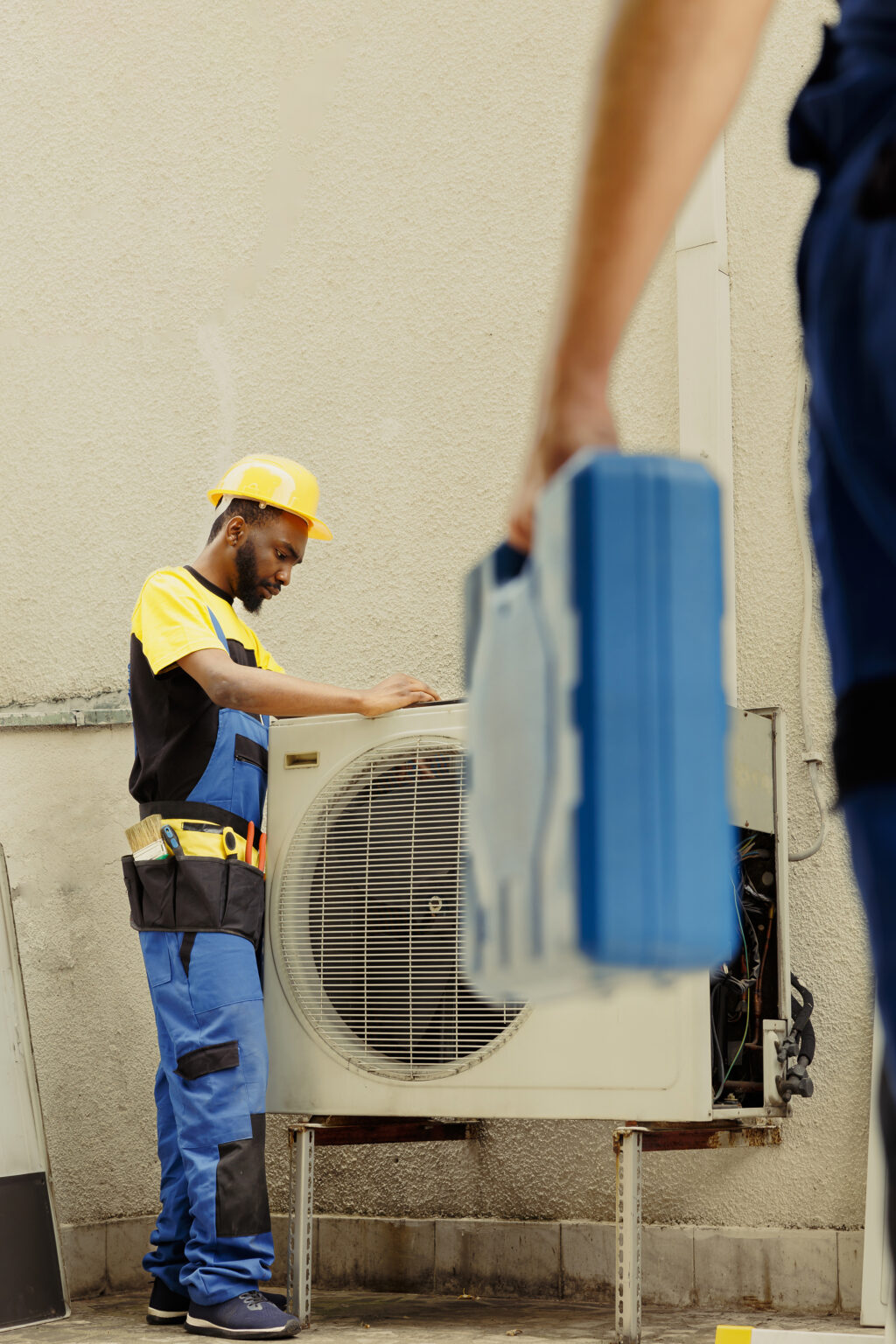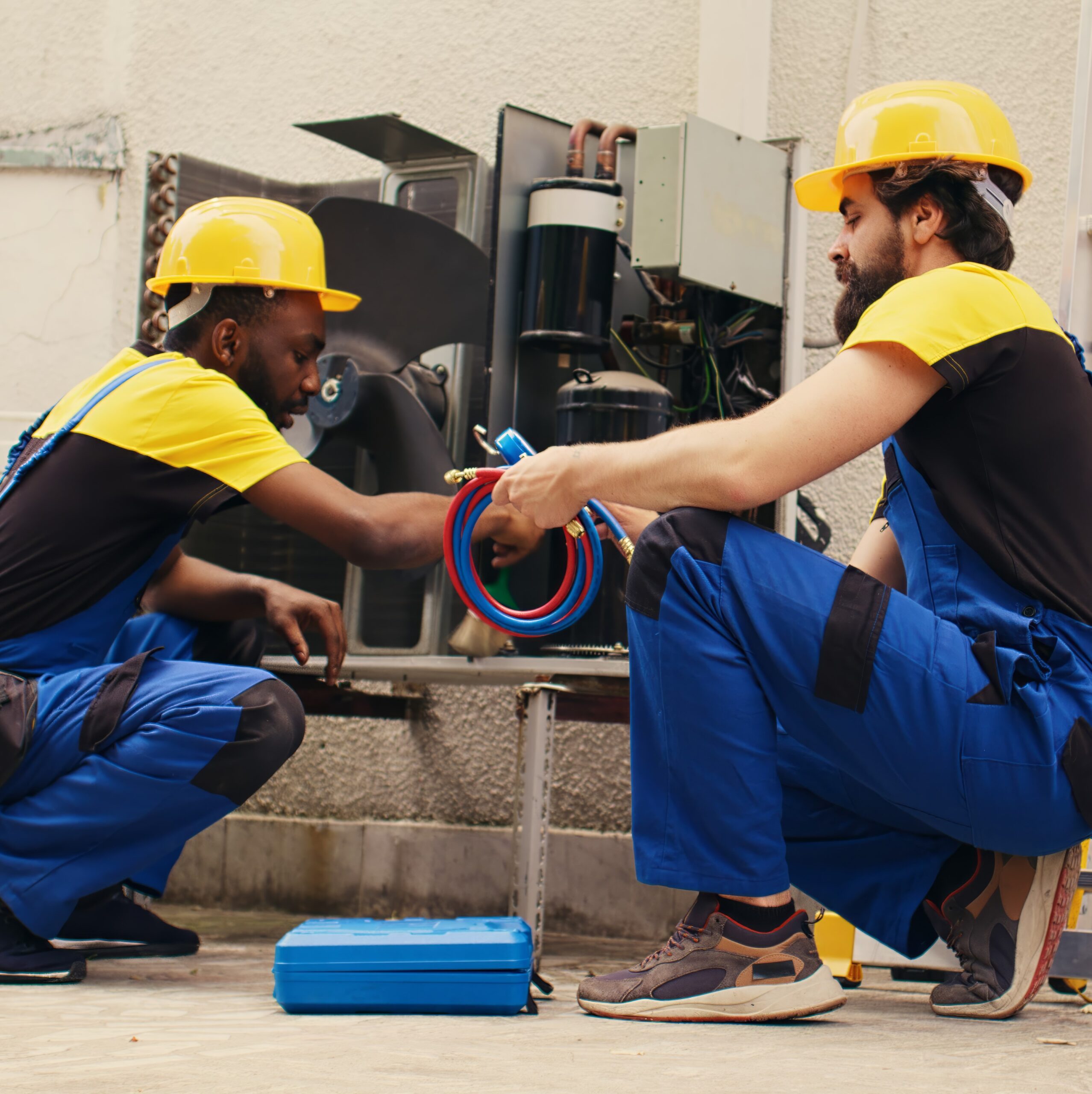Efficient, Reliable Heat Pump for Year-Round Comfort
Experience year-round comfort with a heat pump thethe eco-friendly solution
A heat pump is an energy-efficient system that can both heat and cool your home by transferring heat from one place to another. It works by moving heat from the outside air or ground into your home during winter and reversing the process to cool your space in the summer.


Importance of Reliable & Efficient Home Heat Pump Systems
A well-maintained heat pump reduces the risk of safety concerns, such as refrigerant leaks or system malfunctions. Additionally, a reliable heat pump can boost your home’s resale value and attract potential buyers
Efficient Year-Round Comfort
A heat pump is a versatile and energy-efficient system that provides both heating and cooling for your home. By transferring heat from the outside air or ground, it can keep your home comfortable year-round while reducing energy costs. Heat pumps are environmentally friendly, as they use electricity to move heat rather than generate it, making them a sustainable choice for homeowners. Regular maintenance ensures optimal performance, reduces the risk of costly repairs, and prolongs the lifespan of the system. Whether you’re upgrading your HVAC system or installing a new one, a heat pump is an excellent solution for year-round comfort and energy savings.
Customer experience
Frequently Asked Questions
A heat pump is an energy-efficient heating and cooling system that transfers heat between the inside of a building and the outside environment. In the winter, it extracts heat from the outside air (or ground) and brings it indoors to heat your home. In the summer, it reverses the process and cools your home by removing heat from the indoor air.
Heat pumps work by circulating a refrigerant through a cycle of evaporation and condensation. During the heating process, the pump extracts heat from the air or ground outside and transfers it indoors. In cooling mode, the heat pump works like an air conditioner by extracting heat from the indoor air and releasing it outside.
Yes, modern heat pumps are designed to work efficiently even in colder climates. Air-source heat pumps, in particular, have improved significantly in their ability to operate in temperatures as low as -5°F (-20°C). Additionally, ground-source (geothermal) heat pumps can be used in almost any climate because they rely on the stable temperature of the earth.
Savings depend on various factors, including your current heating and cooling system, the size of your home, and local energy costs. On average, heat pumps can reduce energy bills by up to 50% compared to traditional heating systems, especially when replacing oil, propane, or electric resistance heaters.
Heat pumps require minimal maintenance, but like any HVAC system, regular upkeep is necessary for optimal performance. This includes:
- Cleaning or replacing filters regularly.
- Checking the system for refrigerant leaks.
- Scheduling professional maintenance once a year for cleaning and inspections.
Yes, one of the key advantages of a heat pump is its ability to both heat and cool a home. In winter, it transfers heat into your home; in summer, it acts like an air conditioner and removes heat from inside your home.
With proper maintenance, a heat pump can last anywhere from 15 to 20 years. Air-source heat pumps generally have a lifespan of 15–17 years, while ground-source (geothermal) systems can last even longer.
Yes, many governments, utilities, and local agencies offer incentives, rebates, or tax credits to encourage energy-efficient upgrades. These can significantly reduce the upfront cost of a heat pump installation. Check with your local utility or government programs to see what’s available in your area.

